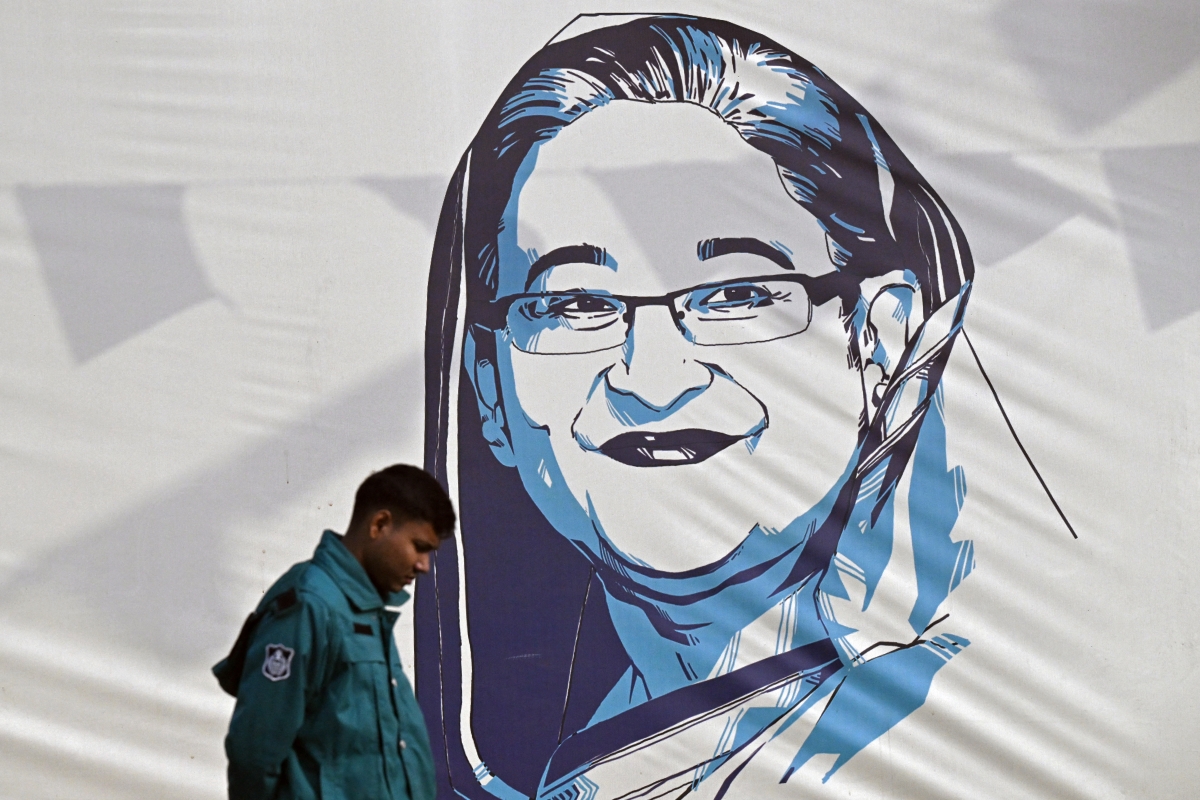Bangladesh’s Political Odyssey

The complex political landscape of Bangladesh, home to nearly 170 million people, was forged during its crucial 1971 struggle for independence and today reflects the country’s dynamic and often tumultuous democratic journey. Key players in this unfolding narrative include the Awami League party, led by Prime Minister Sheikh Hasina, and the Bangladesh Nationalist Party (BNP), founded by the late Ziaur Rahman and subsequently led by his widow, Khaleda Zia. Despite Bangladesh’s rise to regional prominence and commendable economic growth under the Awami League’s leadership in recent years, the political scene continues to be clouded by accusations of authoritarianism, human rights violations, and electoral controversies.
Historical Context and Power Dynamics
Following a democratic upsurge in Bangladesh during the 1990s, a cyclical power struggle between the Awami League and the BNP began to unfold. In 2009, Sheikh Hasina assumed power after an election conducted under the oversight of a neutral caretaker government. However, a pivotal shift occurred in 2011 when the caretaker system was abolished, altering the country's electoral landscape. While opposition strongly criticized this move, arguing that it would grant the ruling party greater control over the voting process, Sheikh Hasina commended it as a “historic moment for democracy.”
The 2014 elections saw increased repression of the opposition, prompting several parties, including the BNP, to abstain from participating. The ensuing protests, now a familiar occurrence during the lead-up to elections, faced a severe, unwarranted response from law enforcement. This troubling trend persisted into the 2018 elections. Unsurprisingly, both elections served to maintain Sheikh Hasina’s hold on power.
As the January 7, 2024, vote drew near, arrests of opposition figures and a rise in street clashes played out on Bangladesh’s political stage. Growing apprehensions about the credibility and fairness of the electoral process prompted a deeper inquiry into its legitimacy. The looming prospect of an authoritative shift in the country added to the concerns surrounding the upcoming elections.
Election Results and International Response
True to expectations, Prime Minister Hasina secured a fifth term, fortifying her position as the world’s longest-serving female head of government. The Awami League’s dominance continued with a staggering 75% of seats in the parliament, as the BNP boycotted the vote, branding it a “sham election” and calling for a general strike. The Jatiya Party (JP), aligned with the Awami League, secured only eleven seats. The reported 40% voter turnout — half that of the 2018 elections — also sparked speculation that the actual figure was much lower.
International pressure on Hasina’s government, particularly from the United States, was already mounting ahead of the elections, urging measures to ensure fairness. Last year, the United States took a significant step by imposing visa restrictions on Bangladeshi officials, accusing them of “undermining the democratic process.” After the elections, a U.S. State Department spokesperson expressed concerns about their fairness, highlighting reports of voting irregularities and condemning the violence that took place before and during the polls. This scrutiny is expected to persist in the aftermath of the elections.
Similarly, the United Kingdom voiced concerns about Bangladesh’s failure to consistently meet democratic standards. The UK’s Foreign, Commonwealth and Development Office conveyed its apprehensions about the significant number of arrests of opposition party members before election day, emphasizing the need to uphold human rights and the rule of law. United Nations High Commissioner for Human Rights Volker Türk added his voice to the chorus, urging Bangladesh’s newly elected government to take decisive steps to renew the country’s commitment to democracy and human rights.
In contrast with Western apprehensions, India, Russia, and China maintained their support for Sheikh Hasina. Under Sheikh Hasina’s government, Bangladesh has engaged strategically with both India and China, shaping a dynamic economic landscape. China’s investment in Bangladesh has risen to nearly 1.4 billion USD, with around 700 Chinese companies operating in the country. During a meeting held on the sidelines of the BRICS Summit last year, Sheikh Hasina and Chinese President Xi Jinping discussed deepening cooperation in key development areas and multilateral mechanisms. This highlights the flourishing partnership between China and Bangladesh, whose sustainability is linked to Sheikh Hasina’s continued leadership.
Diplomatically, the alliance between Bangladesh and India has reached great heights. Both nations have repeatedly expressed their dedication to enhancing collaboration across vital domains such as defense, security, energy, trade, and connectivity. Notably, Bangladesh stands as India’s foremost trade partner in South Asia, and bilateral trade has grown significantly over the last few years. Following the elections, Indian Prime Minister Narendra Modi congratulated Sheikh Hasina and the people of Bangladesh. He emphasized India’s commitment to strengthening India’s “enduring and people-centric partnership” with its South Asian neighbor.
Bangladesh is located near the vital maritime corridor of the Bay of Bengal, giving it a unique geostrategic advantage and making it a lucrative regional partner. The country is actively involved in the Indian Ocean Rim Association and the Bay of Bengal Initiative for Multi-Sectoral Technical and Economic Cooperation, further underscoring its growing role in the broader Indo-Pacific context. The introduction of its Indo-Pacific outlook represents a noteworthy step in Bangladesh’s commitment to collaborating with India, the United States, and other Indo-Pacific nations for regional stability and prosperity. However, Bangladesh is likely to maintain foreign policy neutrality to foster positive ties with all nations, including China, benefiting its economy and strategic interests — something the United States will have to make peace with.
The Immediate Road Ahead
Bangladesh’s complex political environment and global relations create a compelling story, intertwining historical struggles with present-day challenges. Sheikh Hasina’s leadership faces scrutiny on several fronts, demanding a nuanced equilibrium between domestic priorities and international expectations.
Foremost among the immediate challenges for Sheikh Hasina’s government is the task of navigating potential unrest within the country after the elections. The recent polls have deepened the country’s political schisms, inviting intensified international attention, particularly from the West. The global community will continue to watch closely, and Sheikh Hasina’s domestic decisions could have far-reaching foreign policy implications.
Simultaneously, Bangladesh’s economic resilience is contending with external macroeconomic challenges, exacerbated by the aftermath of the COVID-19 pandemic and the ongoing Ukraine conflict. This disruption has shaken the nation’s once-steady economic foundation, prompting concerns about inflation, trade imbalances, and diminishing foreign exchange reserves. Tackling these hurdles demands a strategic amalgamation of robust fiscal policies, comprehensive reforms, and a recalibration of financial institutions and governance structures.
An added consideration emerges from Bangladesh’s anticipated transition from Least Developed Country status in 2026, heightening the imperative to attain its developmental objectives. The nation continues to be highly vulnerable to the effects of climate change, emphasizing the need for robust adaptation policies and international assistance to ensure sustained progress.
Beyond economic and development considerations, Bangladesh will also have to capitalize on the positive momentum of its geopolitical rise, but not without an astute navigation of the U.S.-China and India-China dynamics in the region.

